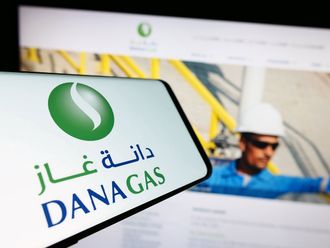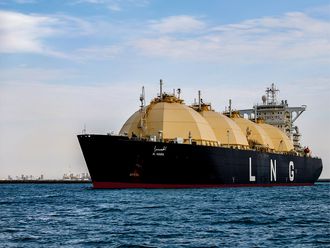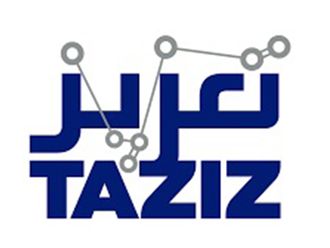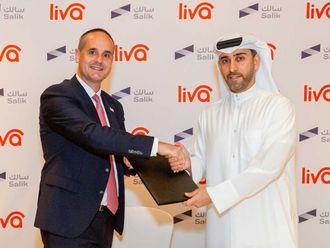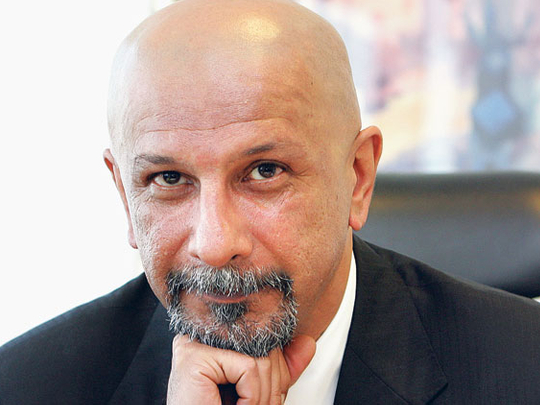
Dubai: Oil and gas marine services company Topaz Energy and Marine managed to continue growing in the past decade, surmounting the global downturn and maintaining its course.
And the Dubai unit of the Oman-listed Renaissance Services continues to make investments in new assets.
With the latest acquisition of a multi-purpose support vessel in Singapore adding to its list of 100 or so vessels, Topaz Energy and Marine grew its revenues to more than $448 million last year.
It saw annual profits rise 38 per cent to $65 million, while sales jumped seven per cent, despite the effects of the market lull.
Topaz chief executive Fazel Fazelbhoy tells Gulf News of current market conditions and how the company consistently rides the wave of investments in offshore oil and gas projects, despite a tough period in which rates fell up to 15 per cent.
"If oil companies are spending, exploring and continue production… that's the driver for our business," he said.
GULF NEWS: In the markets where you operate in the Middle East, North Africa and Mediterranean, what has demand been like in the first half of this year?
FAZEL FAZELBHOY: The markets in general have been soft for the past three quarters. Speaking for the Offshore Support Vessel industry at large, the third quarter 2009 coming into first quarter 2010 were probably the worst in terms of both occupancy and rates.
However, occupancy firmed during the second quarter and that's a good indication that rates will follow.
This period was characterised by an inversion of normality, in that for once OSV operators wanted to go short on contracts and the oil companies, for a change, wanted to go long.
Both fully expected that occupancy and rates were to rise through the rest of 2010.
When did you begin to feel the shocks of the drop in demand that affected the oil and gas industry as a whole?
September 2009 onwards, the fourth quarter was very low. But our vessels, about 100 of them, were already on contract.
So while the rest of the world went into a sudden recession, we didn't see any change in our market place, until the contracts were coming up for renewal. So we did fine in 2008, we did fine in the first half of 2009 and only in the third and fourth quarter, we started to see the impact.
At this point, much of the world was talking about recovery… our recession was just beginning because there is a lag in this business.
Was the engineering side of Topaz's business also witnessing a lag in change in market fundamentals?
We saw similar things in engineering. When we had a good order backlog, our yards were full. We had orders in hand and we were executing them.
But new business was slow to come in. It wasn't until the end of 2009 and starting into 2010 that when Abu Dhabi started opening some of their doors to procurement.
Everybody was waiting and watching to see how low prices would go. And while prices were low, you actually found a lot of re-biding. A lot of contracts were being re-bid, simply because people wanted the best combination of price under the current circumstances. So a low bidding period in terms of order intake, but a very high activity period in terms of estimations. The same job was bid four or five times, as everyone tried to make sure that prices were at the lowest levels.
What has been the overall drop in rates since the fall in demand in 2009?
In the spot market business, with about 30 vessels operating in the Middle East, there was anywhere from a 10-15 per cent drop in rates.
In the Caspian where we operate 70 vessels predominantly on 10-year contracts, there was no change in rates.
There was a zero percent drop in that case.
As a result of lower rates, how were Topaz's revenues hit?
In revenues, we did better in 2009 than 2008. And 2008 was a record year for us, in 2009 we did even better.
No company is recession proof but we proved to be recession resilient.
We were able to demonstrate the strategic balance in our business model with the combination of the short-term, volatile markets in the Middle East that tend to be more profitable; compared to the longer term rates we have in the Caspian sea, which are less profitable on a per day basis, but they have consistency in cash flows that are far more predictable.
How far would you say rates have recovered from the lowest of lows?
Rates have come back to about mid-range. It's still about 10 per cent below of what it was at the peak rate of 2008. Now, many would argue that 2008 was artificially high and therefore these are already fully recovered rates. There will be many different views on what are normalised rates in this market.
Is Topaz looking into new niche markets? Where do you see a stronger growth potential?
We are always looking to innovate and gain market share through various growth initiatives. The markets we serve in the Caspian and the Middle East cover 65 per cent of the world's hydrocarbon reserves so we have plenty of opportunities to expand and if possible consolidate our strategic acquisitions.
However ... we also need to look forward to follow future oil. Current oil production is on a depletion treadmill and no elephant fields have been discovered in shallow waters in recent years.
All major giant fields continue to be discovered offshore but in much deeper waters.
We ... have set our sights on West Africa and Brazil as markets that offer significant growth potential. Future oil will be characterised by what I refer to as the four D's: Deep, Distant; Difficult and Dangerous.
What are Topaz's upcoming projects and new markets?
We have recently been awarded a $45m tank farm project in Fujairah and are working on several more key opportunities in this rapidly growing emirate. On the marine side, we are looking for breakthrough successes in both West Africa and Brazil. Through this year, we also hope to capitalise on our recently formed joint venture in Saudi Arabia and with our six new build vessels, designed to Aramco's exacting standards, we hope to make a strategic entry there very soon.
Do you have acquisitions or fleet additions planned for the coming months?
All of the above. In our business there is a very thin line between an acquisition of a company, or buying a fleet of multiple vessels.
Our acquisition of Doha Marine Services in 2008 is exactly an example of that, whereby, within three months of the acquisition of the company, we had fully integrated the 14 new vessels into our fleet and into our ERP system whereby the financials were being reported in our internal formats in a seamless manner.
We have a strong balance sheet and we are hungry.
What current projects are you involved in that would generate most revenues for the company at the current stage?
The Engineering business generally takes a while to gain momentum. Hence we see 2010 as the start of the uptick in this market.
So far, our strategic investment in a fabrication facility in Fujairah, custom designed for the tank farm market, has paid off.
Fujairah is a strategic location and provides the Emirates and most of the GCC nations (other than Saudi Arabia and Oman which have independent access) direct access to the Arabian Sea without having to go through the potential choke point of the Straits of Hormouz.
The investments in the tank farm business, purely on a strategic rationale, have been nothing short of phenomenal so we have been fortunate to be able to capitalise on this and hope to continue to do so.
Secondly, Abu Dhabi has unleashed several large projects that had been pending award through the end of 2008 and 2009.
As these gain traction, we intend to capitalise on our position of being one of the leading fabrication yards based in Abu Dhabi.
On the marine side, our Caspian businesses have been steady and we continue to demonstrate our dominant leadership position in those markets.
Are you looking at bringing synergies into the business, as the business world considers cost cuts and restructuring?
Always. This has been one the key ingredients of our success.
We have been able to integrate our engineering businesses with our marine business to deliver outstanding solutions.
Just recently for a project in Qatar, we were given a near impossible task of upgrading an existing vessel with additional accommodation, an expanded bridge, and the inclusion of moon tubes on deck.
We brought the vessel to the Topaz Marine Repair dry-docking facility in Abu Dhabi and in record time were able to upgrade the vessel in less than 40 days.
The client in a really complimentary email stated that "Topaz Marine has done the impossible".
It is difficult to imagine an unrelated shipyard putting that kind of commitment into a customer's vessel.
In a similar manner, we have set up a shipyard in Bautino, Kazakhstan to support the 40-plus vessels we own and operate there.
Heretofore, our vessels had to clear customs and go to either Astrakhan (Russia) or Baku (Azerbaijan) which meant a significant diversion; both in terms of time and cost.
These are just a few of the synergies that result from the combined Engineering and Marine activities that Topaz represents.
What are your projections for the year-end in terms of performance?
We made significant investments in new vessels in 2009. Many of these vessels will come into service in 2010, thus bringing in additional earning capacity to the balance sheet. For over a decade we have consistently demonstrated year on year growth, and as the world appears to have turned the corner of the worst recession we have witnessed as a company, we are cautiously optimistic about the future.



